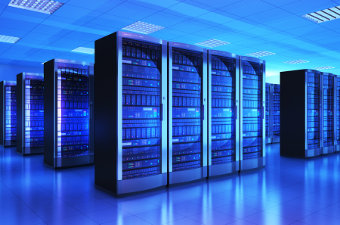Servers
Last Updated: 07/17/24
An enterprise server computer that provides services and manages networked resources for client devices (e.g., desktop computers, notebook computers, thin clients, wireless devices, PDAs, IP telephones, other computer servers, or other network devices). Does not include small-scale servers.
 Product Details
Product Details
To the maximum extent practicable, federal agencies are required to buy sustainable products, which are products that meet the purchasing program(s) listed below.
If there is more than one program listed below, agencies are directed to prioritize multi-attribute products, which meet statutory purchasing program requirements (![]() ) and one or more required Environmental Protection Agency purchasing programs.
) and one or more required Environmental Protection Agency purchasing programs.
Review our frequently asked questions for more information.
|
Procurement Info
|
Where to Buy
|
|---|---|
|
|
 Legal Requirements
Lists federal requirements related to the purchase of this item, including applicable Federal Acquisition Regulation (FAR) requirements
Legal Requirements
Lists federal requirements related to the purchase of this item, including applicable Federal Acquisition Regulation (FAR) requirements
 Life Cycle Cost Savings
Life Cycle Cost Savings
Life Cycle Costing (LCC) aims to quantify the financial impact of a product over its entire life cycle to assist consumers in making decisions that will save them money over the long term.
An efficient product is cost effective when the utility costs saved over the life of the product exceed the additional upfront cost (if any) of the more efficient model. Energy Star considers both upfront costs and lifetime energy cost savings when setting required efficiency levels. Federal purchasers can assume that Energy Star-qualified products are life-cycle cost effective.
To calculate life cycle cost savings, explore these tools:
- EPEAT offers a benefits calculator
 to quantify the environmental and financial benefits compared to standard products.
to quantify the environmental and financial benefits compared to standard products. - NREL’s Levelized Cost of Energy Calculator
 can help estimate the cost of electricity as an input for your lifecycle cost calculations, accounting for both cost escalation and discount rates.
can help estimate the cost of electricity as an input for your lifecycle cost calculations, accounting for both cost escalation and discount rates.


 Energy Star
Energy Star
 EPEAT Ecolabel (Highest Rating Available)
EPEAT Ecolabel (Highest Rating Available)